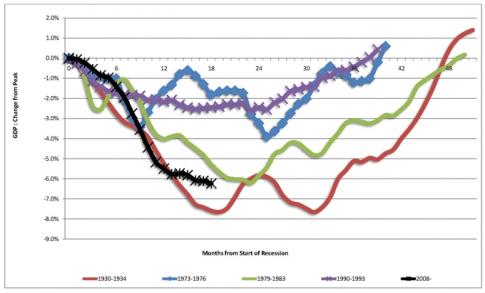QE would be right for Europe, too

For the moment, the eurozone crisis resolution process feels good because none of this month’s potential accidents happened. The German constitutional court has taken itself out of the equation. Good riddance.
By Wolfgang Münchau
When I heard the news of another round of quantitative easing in the US last week, my first thought was that Mario Draghi should have done the same. Instead, the president of the European Central Bank opted for a conditional bond purchasing programme with an uncertain start date. In the meantime, the eurozone’s faltering economy needs a much more determined monetary stimulus, and it needs it right now.
For the moment, the eurozone crisis resolution process feels good because none of this month’s potential accidents happened. The German constitutional court has taken itself out of the equation. Good riddance. Dutch voters re-elected their government and rejected the lure of populist propaganda. Mr Draghi did what was expected. While the economic situation in the member states gets worse, policy makers seem punch-drunkenly optimistic. They have not had so much luck in some time. The ECB’s Outright Monetary Transaction programme gave them a break.
But trouble is already building that may soon destroy the OMT’s credibility. Mariano Rajoy is still sending confusing and conflicting messages about whether Madrid will apply for the programme. The ECB made it easy for the Spanish prime minister. To qualify for the OMT, all the Spanish government needs to do is to apply for the so-called Enhanced Conditions Credit Line – a minimalist programme with limited conditionality. Mario Monti, Italy’s prime minister, has said Rome will not apply for the programme before its election. I have heard the first EU official admitting openly that maybe nobody will apply and the ECB may never have to buy a single bond. If market sentiment is sufficiently positive, that argument goes, things might resolve themselves.
So, do they really want to make the OMT look like a cheap confidence trick? I do not believe this was ever Mr Draghi’s intention, but if you link an ECB bond purchasing programme to a political process, this may be an unintended consequence. When Jyrki Katainen, the Finnish prime minister, visited Madrid last week, one did not have the impression that he was in hurry to press Mr Rajoy into a rescue. Germany’s chancellor, Angela Merkel, does not seem to be either. Politically, it is easier for her not to have to ask the Bundestag to vote on a Spanish programme. For Mr Rajoy, it is easier not having to accept any Bundestag-set conditions.
Mr Monti wants to go down in history as the man who saved Italy, not for going cap in hand to Brussels. There are good political reasons that stop elected politicians from applying for the OMT – but without a request, the OMT cannot become effective. And there is no way Mr Draghi can force governments to act.
The main lesson I have drawn from the crisis resolution process is that you can never overestimate the complacency of European policy makers. The notion that the OMT is in itself sufficient through some magical confidence effect reminds me of what happened after the ECB began its liquidity programme last year. That, too, was followed by a slowdown in political decision-making. I had expected the same to happen with the OMT eventually, but not quite so fast.
Let us now assume that I am wrong and that Mr Rajoy and Mr Monti both blink in the next couple of weeks and apply for the OMT, subject to some externally set conditionality. What will the ECB do when a newly elected Italian government takes office next year, and decides to tweak the reform process a little, as the Greeks have been doing recently? Will the ECB really sanction Italy, risking its economic collapse and possibly a financial meltdown in Europe? As the answers to this question are so obvious, there surely must be an incentive for electorates and their elected representatives to call Mr Draghi’s bluff, or at least to push him to the limit.
So we might be damned if the OMT works and damned if it does not. Mr Draghi was right in his core argument – that the ECB needs to repair the broken monetary transmission mechanisms. So why not do what the Americans did: start buying corporate bonds and other fixed-interest securities, including bank bonds, immediately. Instead of a complex programme of conditional government bond purchases, the ECB should be delivering a broad-based monetary stimulus. And while I do not believe another interest rate cut is going to make a big difference, there is no reason to delay it either.
The biggest danger for the eurozone right now is not a law court or an election but a rapidly deteriorating economy. Global demand is slowing, the euro is strengthening against the dollar, fiscal policy is pro-cyclical. A programme of quantitative easing would have been the best single measure – and possibly the only one – to halt a self-reinforcing crisis.
Copyright The Financial Times Limited 2012.




 del.icio.us
del.icio.us Digg
Digg

Post your comment